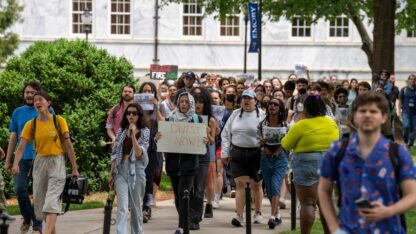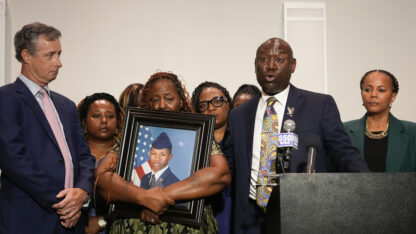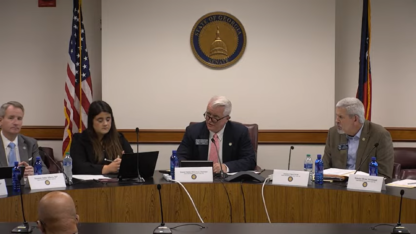Report: Ga.’s HOPE Scholarship Could Run Out Of Money By 2028

The University of Georgia North Campus green in Athens, Georgia on Wednesday, March 18, 2015. (Photo/Brenna Beech)
Brenna Beech / WABE
Hear the audio version of this story.
Georgia’s lottery-funded HOPE scholarship program has struggled to keep up with demand in recent years. Now, a new report says HOPE could run out of money by the time today’s pre-kindergarten students are in college. The study was issued by a group of private businesses, called The Committee to Preserve HOPE Scholarships. It says the program could run a deficit by the year 2028.
The report’s author, Nancy Badertscher, says families shouldn’t panic that HOPE will disappear.
“We decided, ‘What if you ran an analysis of the current trends in it? The growth in the different programs, the growth in the Lottery, the growth in tuition and stuff? What if you could give folks a heads up on the future?’” she says.
When HOPE began in 1993, it covered full tuition at Georgia’s public colleges for students who had a B average in high school and maintained a B average in college. That became expensive, so HOPE was restructured in 2011 to stretch its dollars. Now, students with A averages get full tuition covered. Students with B averages get tuition assistance, but not a full ride.
“We did think that post the 2011 changes, maybe the public wasn’t quite aware what the program had done,” Badertscher says.
Some state lawmakers have proposed legalizing casinos as a new revenue source for HOPE. The committee, which includes at least one casino organization, does not recommend solutions for keeping the program afloat.
“We want this to just be a baseline for discussion, and we acknowledge that the Legislature has – and could – make any changes to put the program into better position,” Badertscher says.
The Georgia Student Finance Commission, which administers HOPE, issued the following statement about the report:
“The Committee to Preserve HOPE Scholarships is a private entity with no affiliation with the Georgia Student Finance Commission (GSFC). We just received this report and look forward to analyzing it over the coming days. As with any long-term projection, it is critical to understand that there are many factors that can impact program costs – tuition, enrollment, etc.”
9(MDAxODM0MDY4MDEyMTY4NDA3MzI3YjkzMw004))








